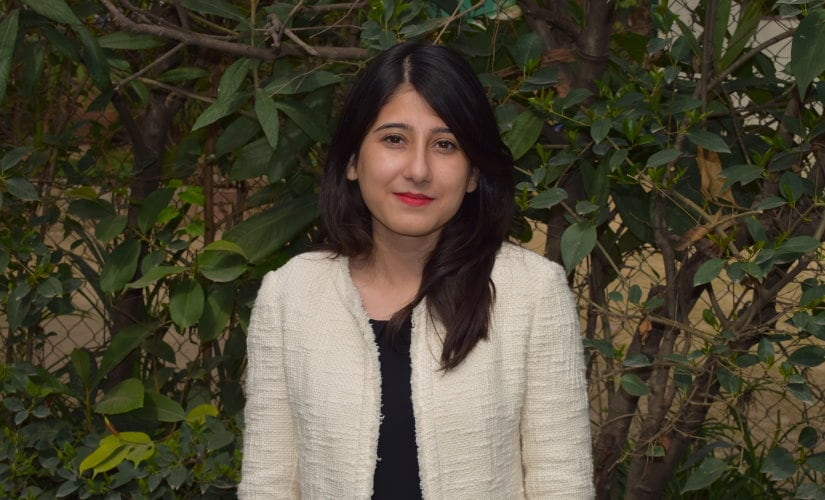History will always remember 1971, the year that culminated in the separation of East Pakistan from West Pakistan and saw the emergence of Bangladesh. The three countries involved – India, Pakistan and Bangladesh – all have a selective remembrance of what was a significant year in the history of South Asian politics. “Like other conflicts in the region, this one too has been usurped by the bilateral politics of India-Pakistan, remembered on both sides as another Indo-Pak war. In the process, people’s history and the Bengali people’s struggle is overshadowed, at least in official memory,” says Anam Zakaria, author and oral historian. She decided to research beyond the official histories recorded and presented, and discover the truth by speaking to people involved in the conflict. The results of her research find their way into 1971: A People’s History from Bangladesh, Pakistan and India (Penguin Random House), which released last month. This is Zakaria’s third book, after Between the Great Divide: A Journey into Pakistan-Administered Kashmir, and The Footprints of Partition: Narratives of Four Generations of Pakistanis and Indians. The Lahore-born, Canada-based author is also an informed writer on issues of conflict in South Asia. [caption id=“attachment_7928211” align=“alignnone” width=“825”]
 Author Anam Zakaria[/caption] 1971 is a book that goes beyond the ideologies and politics in an attempt to find the truth and show how people’s history differs when compared to official history. Zakaria used oral history, extensive personal interviews, museum visits, and field research in her ‘quest to learn more about one of the most defining years in South Asian history’. Excerpts from an interview: Does 1971 challenge the narratives of both India and Pakistan regarding Bangladesh or seek to destroy the mainstream bias against the country? 1971 seeks to bring forth the distinct state narratives in Bangladesh, Pakistan and India to understand the ways in which ’71 has left a lasting legacy, shaping national and regional politics in South Asia. At the same time, it juxtaposes this state-level history with people’s history to highlight the many ways in which Bangladeshis, Pakistanis and Indians experienced the war, and the ways in which their memories respond to, resist or conform with official memory. This book is an effort to understand the meaning ’71 continues to hold both at the state level and the people’s level, and to explore the interaction between these two types of memories. The book argues that regional variations do matter; for instance in West Bengal and other bordering regions which saw a huge influx of refugees, ’71 continues to hold different meanings even today. Bangladesh remembers 1971 for the Bengali people’s struggle against an oppressive Pakistan army, in India and Pakistan, the war is often remembered as the third Indo-Pakistan war. How do these distinct narratives impact the history of each country and its future relations with each other? These distinct narratives shape the way the three countries see themselves and each other. In Pakistan, after the war a ‘never again’ mentality was cemented; textbooks were revised with a more overt anti-Hindu and anti-India slant and defence spending was increased to ensure that the nation is never again ‘dismembered’. In India, the birth of Bangladesh, which is to-date deemed as the country’s
finest win, was perceived as a testament to the nation’s military strength and to its superpower status in the region. The Emergency in 1975 and the use of force to curb dissent in India can be viewed vis-à-vis this ‘victory’ and the growing confidence in the aftermath of the ’71 war. Today, India’s neighbours, including many Bangladeshis, resent its ‘big brother’ attitude towards its adjacent countries. In Bangladesh, I observed resentment towards both India and Pakistan for hijacking what is seen as a people’s movement and treating it as another bilateral affair. I was also told that state narratives shift depending on who is in power and that the post-war politics are also often cast under the shadow of the pro-Pakistan, anti-liberation and pro-India pro-liberation binaries with an ongoing India-Pakistan proxy being played out in Bangladesh. You mention that the official Bangladeshi version of history begins from where it ends for the Pakistani state, with both countries conveniently forgetting the actions that may complicate or threaten their ‘national truths’. Whose version do we believe? How do we dig deeper and find out what lies between these ‘national truths’? As an oral historian I am less interested in uncovering ‘objective truths’ or ‘new facts’ and more concerned with the nuanced ways in which people experience conflict and war. In my experience, while state-level history often presents the past in a linear and simplistic fashion, people’s experiences are far more complex. Any notion of truth can often lie in between perceivable contradictions. For instance, while in official memory the lines between enemy and friends are clear-cut, many people narrated stories of being rescued by the so-called ‘other’ during the most tumultuous and violent of times. These stories can complicate ‘national truths’ but are an essential reality for so many people.
Anam Zakaria’s 1971: A People’s History from Bangladesh, Pakistan and India is an attempt at probing one of the most defining years in South Asian history.
Advertisement
End of Article


)
)
)
)
)
)
)
)
)



